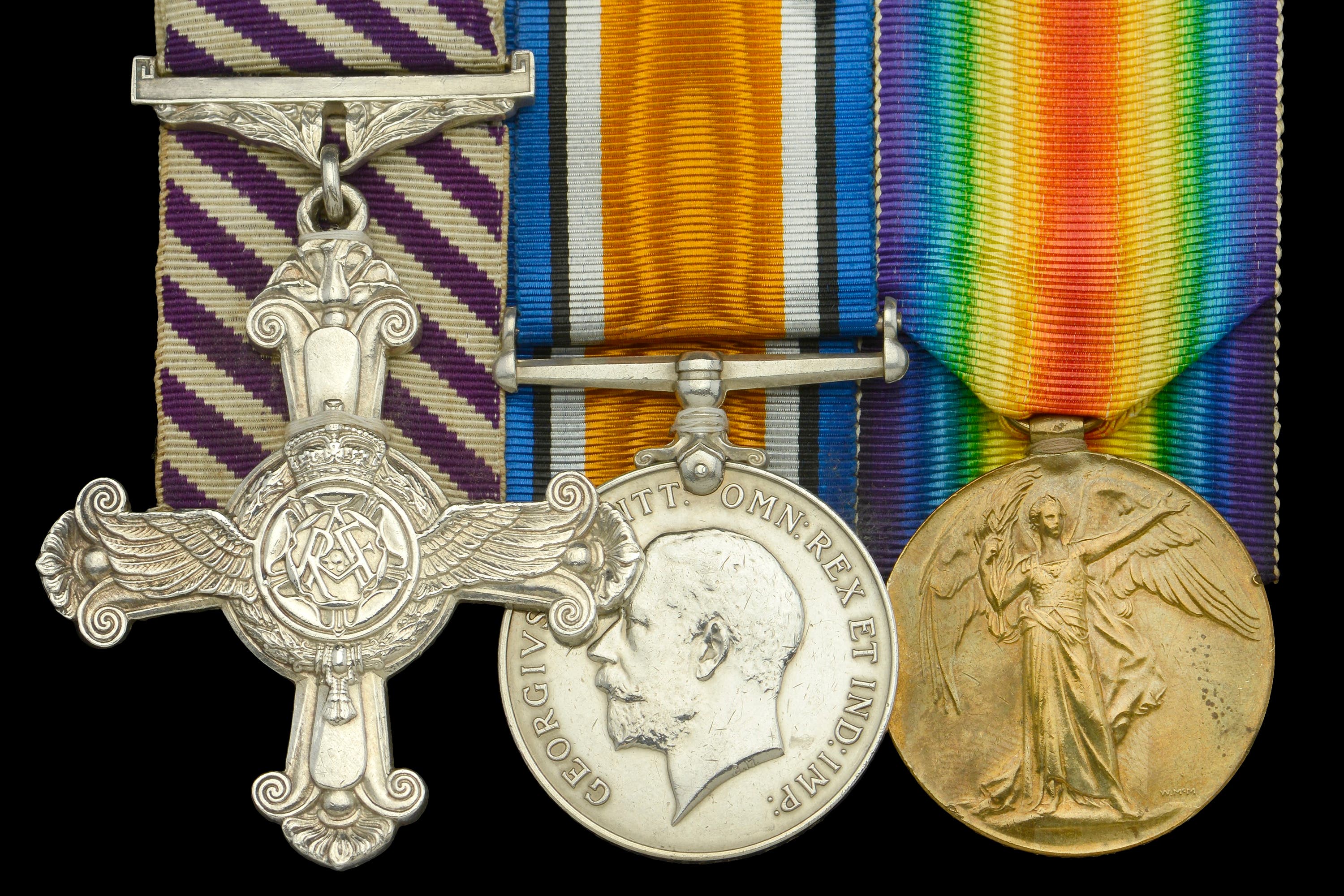Medals of First World War flying ace to be auctioned
Captain Solomon Clifford Joseph scored at least 13 victories in the final months of the conflict.

Your support helps us to tell the story
From reproductive rights to climate change to Big Tech, The Independent is on the ground when the story is developing. Whether it's investigating the financials of Elon Musk's pro-Trump PAC or producing our latest documentary, 'The A Word', which shines a light on the American women fighting for reproductive rights, we know how important it is to parse out the facts from the messaging.
At such a critical moment in US history, we need reporters on the ground. Your donation allows us to keep sending journalists to speak to both sides of the story.
The Independent is trusted by Americans across the entire political spectrum. And unlike many other quality news outlets, we choose not to lock Americans out of our reporting and analysis with paywalls. We believe quality journalism should be available to everyone, paid for by those who can afford it.
Your support makes all the difference.Medals awarded to a First World War flying ace are to be auctioned off next month.
They were awarded to Captain Solomon Clifford Joseph of the Royal Naval Air Service (RNAS) and Royal Air Force (RAF) in the final months of the war in 1918.
His medals – a Distinguished Flying Cross, second award bar, an American First World War Victory Medal and a British War Medal – are being sold by a private collector by Noonans Mayfair on October 13, with an estimate of between £15,000 and £18,000.
Cpt Joseph was the highest-scoring Jewish ace of the conflict and the only one to hail from Birmingham, with at least 13 aerial victories attributed to him.
Joseph was a 'gung-ho' pilot whose aggressive flying style and skill accounted for at least 13 aerial victories over the Western Front between May and October 1918
Mark Quayle, medal specialist and associate director of Noonans, said: “Joseph was a ‘gung-ho’ pilot whose aggressive flying style and skill accounted for at least 13 aerial victories over the Western Front between May and October 1918.
“He was no stranger to taking risks, and was wounded in aerial combat, and nearly shot down on many occasions.”
Cpt Joseph was born to a fine art dealer in Birmingham in April 1893, living on Speedwell Road in Edgbaston.
Joining the RNAS – the predecessor to the RAF – in August 1917, he trained at Crystal Palace and Vendome in France.
He was posted to Dunkirk on February 16 1918, and flew Sopwith Camels from various bases until November 28 1918, after the war had concluded.
His Distinguished Flying Cross – one of around 65 to be issued during the conflict – came in September 1918, with the London Gazette stating: “A gallant pilot who has accounted for eight enemy aircraft within the past four months.
“On many occasions the enemy were numerically superior to Lieutenant Joseph’s patrol, but this did not prevent his attaining success.”
His second award bar came less than two months later.
The London Gazette said: “A very gallant and skilful officer.
“He led his formation under a large force of enemy aircraft with a view to inducing them to descend to attack him.”
Following the war, Cpt Joseph began a manufacturing career in his home city, where he died in March 1966.
Bidding information can be found on the Noonans website.